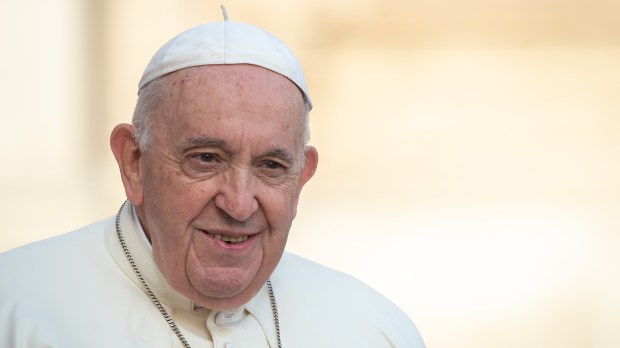Jesus’ first miracle recounted in the Gospel of St. Mark, is an exorcism. In the general audience of September 28, Pope Francis noted the deep significance of that first healing, as the possessed man is freed “from the false image of God that Satan has been suggesting since the beginning: that of a God who does not want our happiness.”
The possessed man in that passage of the Gospel knows that Jesus is God, but this does not lead him to believe in Him. In fact, he says, “You have come to ruin us” (v. 24).
The Pope is dedicating his weekly Wednesday catechism to the theme of discernment, a theme which, as a Jesuit, is very close to his heart.
The Pope lamented that many people, even many Christians, think the same as the possessed man of the Gospel: “that is, that Jesus may well be the Son of God, but they doubt that He wants our happiness; indeed, some fear that taking his proposal seriously, that which Jesus proposes to us, means ruining our lives, mortifying our desires, our strongest aspirations.“
Pope Francis acknowledged that these kinds of thoughts “sometimes creep up inside us: that God asks too much of us, we fear that God asks too much of us, that He doesn’t really love us.”
But in reality, the Pope assured, “the sign of meeting the Lord is joy. When I encounter the Lord in prayer, I become joyful.”
“Sadness, or fear, on the other hand, are signs of distance from God,” he said.
Those who turn away from the Lord are never happy, even though they have an abundance of possessions and possibilities at their disposal. Jesus never forces you to follow Him, never. Jesus lets you know His will, with all His heart He lets you know things, but He leaves you free. And this is the most beautiful thing about prayer with Jesus: the freedom that He allows you.
On the other hand, when we distance ourselves from the Lord, we are left with something sad, something ugly in our heart.


